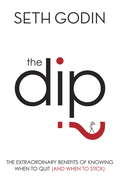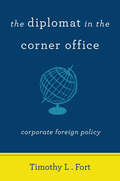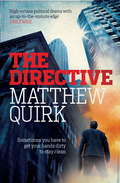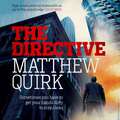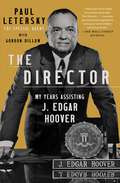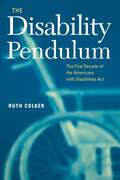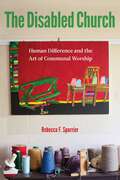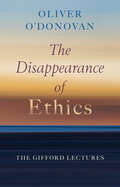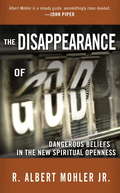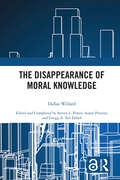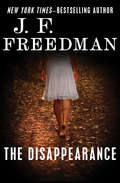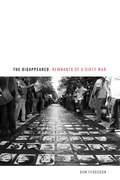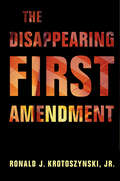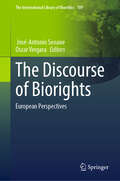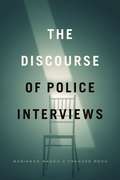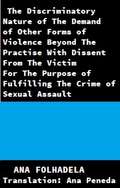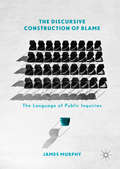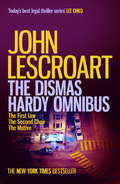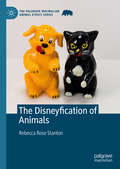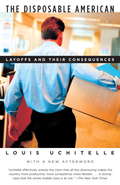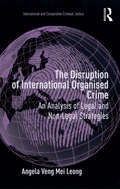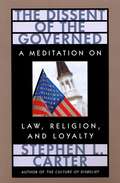- Table View
- List View
The Dimensions of Consequentialism
by Martin PetersonConsequentialism, one of the major theories of normative ethics, maintains that the moral rightness of an act is determined solely by the act's consequences. The traditional form of consequentialism is one-dimensional, in that the rightness of an act is a function of a single moral aspect, such as the sum total of wellbeing it produces. In this book Martin Peterson introduces a new type of consequentialist theory: multidimensional consequentialism. According to this theory, an act's moral rightness depends on several separate dimensions, including individual wellbeing, equality and risk. Peterson's novel approach shows that moral views about equality and risk that were previously thought to be mutually incompatible can be rendered compatible, and his precise theoretical discussion helps the reader to understand better the distinction between consequentialist and non-consequentialist theories. His book will interest a wide range of readers in ethics.
The Dip: The extraordinary benefits of knowing when to quit (and when to stick)
by Seth GodinThis iconic bestseller from the bestselling author of All Marketers Are Liars proves that winners are just the best quitters and 'should be on every entrepreneur's book list' (Entrepreneur.com)Every new project (or career or relationship) starts out exciting and fun. Then it gets harder and less fun, until it hits a low point - really hard, really not fun. At this point you might be in a Dip, which will get better if you keep pushing, or a Cul-de-Sac, which will never get better no matter how hard you try. The hard part is knowing the difference and acting on it. According to marketing guru and best-selling author Seth Godin, what sets successful entrepreneurs (and pop stars and weight lifters and car salesmen) apart from everyone else is their ability to give up on Cul-de-Sacs while staying motivated in Dips. Winners quit fast, quit often and quit without guilt - until they commit to beating the right Dip for the right reasons. You'll never be number one at anything without picking your shots very carefully. The Dip is a short, entertaining book that helps you do just that. It will forever alter the way you think about success. 'Smart, honest, and refreshingly free of self-help posturing, this primer on winning-through-quitting is at once motivational and comically indifferent. . . Godin's truth-that "we fail when we get distracted by tasks we don't have the guts to quit"-makes excellent sense of an often-difficult career move' (Publishers Weekly)
The Diplomat in the Corner Office: Corporate Foreign Policy
by Timothy L. FortIn The Diplomat in the Corner Office, Timothy L. Fort, one of the founders of the business and peace movement, reflects on the progress of the movement over the past 15 years--from a niche position into a mainstream economic and international relations perspective. In the 21st century global business environment, says Fort, businesses can and should play a central role in peace-building, and he demonstrates that it is to companies' strategic advantage to do so. Anchoring his arguments in theories from economics and international relations, Fort makes the case that businesses must augment familiar notions of corporate responsibility and ethical behavior with the concept of corporate foreign policy in order to thrive in today's world. He presents a series of case studies focusing on companies that have made peace a goal, either as an end in itself or because of its instrumental value in building their companies, to articulate the three different approaches that businesses can use to quell international conflict-- peace making, peace keeping, and peace building. He then demonstrates their effectiveness and proposes policies that can be utilized by business, civil society, and government to increase the likelihood of business playing a constructive role in the conciliatory process. This book will be of enormous use not only to students and scholars but also to leaders in NGOs, government, and business.
The Directive (Mike Ford)
by Matthew QuirkNever bet in another man's game, they say, but what if that man is your brother and the hand he's been dealt is lethal? Michael Ford has worked tirelessly to escape his criminal past and finally has it all: a beautiful fiancée and a promising career. Yet his brother Jack's return threatens to unravel everything. Embroiled in a billion-dollar conspiracy against the Federal Government, the only way Jack can come out alive is with Mike's help.Sucked back into the dark criminal underworld against his will, Mike soon realises the only way to secure his future is to walk straight back into his past.
The Directive (Mike Ford)
by Matthew QuirkWhat if the only way to go straight is to break the law?Michael Ford has finally escaped his chequered past to lead the respectable life he's always dreamed of, preparing to settle down with his fiancée Annie. But the quiet is shattered when his brother, Jack, comes back into his life.Jack is a world-class con man who has finally overplayed his hand. He's in way over his head in a conspiracy to steal a billion-dollar secret from the heart of the financial system. And in an effort to help his brother, Mike soon finds himself trapped by the dangerous men in charge - and responsible for pulling off the heist himself. With Annie's safety on the line, Mike tries to figure out who's behind the job - and realises the only way to keep the honest life is to return to his criminal past. But will he get in too deep to save Annie's life?(P)2014 Hachette Audio
The Director: My Years Assisting J. Edgar Hoover
by Paul LeterskyThe first book ever written about FBI Director J. Edgar Hoover by a member of his personal staff—his former assistant, Paul Letersky—The Director offers unprecedented insight into an American legend.The 1960s and 1970s were arguably among America&’s most turbulent post-Civil War decades. While the Vietnam War continued seemingly without end, protests and riots ravaged most cities, the Kennedys and MLK were assassinated, and corruption found its way to the highest levels of politics, culminating in Watergate. In 1965, at the beginning of the chaos, twenty-two-year old Paul Letersky was assigned to assist the legendary FBI director J. Edgar Hoover who&’d just turned seventy and had, by then, led the Bureau for an incredible forty-one years. Hoover was a rare and complex man who walked confidently among the most powerful. His personal privacy was more tightly guarded than the secret &“files&” he carefully collected—and that were so feared by politicians and celebrities. Through Letersky&’s close working relationship with Hoover, and the trust and confidence he gained from Hoover&’s most loyal senior assistant, Helen Gandy, Paul became one of the few able to enter the Director&’s secretive—and sometimes perilous—world. Since Hoover&’s death half a century ago, millions of words have been written about the man and hundreds of hours of TV dramas and A-list Hollywood films produced. But until now, there has been virtually no account from someone who, for a period of years, spent hours with the Director on a daily basis. Balanced, honest, and keenly observed, The Director offers a unique inside look at one of the most powerful law enforcement figures in American history.
The Disability Pendulum: The First Decade of the Americans With Disabilities Act (Critical America #39)
by Ruth ColkerSigned into law in July 1990, the Americans with Disabilities Act (ADA) became effective two years later, and court decisions about the law began to multiply in the middle of the decade. In The Disability Pendulum, Ruth Colker presents the first legislative history of the enactment of the ADA in Congress and analyzes the first decade of judicial decisions under the act. She assesses the success and failure of the first ten years of litigation under the ADA, focusing on its three major titles: employment, public entities, and public accommodations.The Disability Pendulum argues that despite an initial atmosphere of bipartisan support with the expectation that the ADA would make a significant difference in the lives of individuals with disabilities, judicial decisions have not been consistent with Congress’ intentions. The courts have operated like a pendulum, at times swinging to a pro-disabled plaintiff and then back again to a pro-defendant stance. Colker, whose work on the ADA has been cited by the Supreme Court, offers insightful and practical suggestions on where to amend the act to make it more effective in defending disability rights, and also explains judicial hostility toward enforcing the act.
The Disabled Church: Human Difference and the Art of Communal Worship
by Rebecca F. SpurrierHow do communities consent to difference? How do they recognize and create the space and time necessary for the differences and disabilities of those who constitute them? Christian congregations often make assumptions about the shared abilities, practices, and experiences that are necessary for communal worship. The author of this provocative new book takes a hard look at these assumptions through a detailed ethnographic study of an unusual religious community where more than half the congregants live with diagnoses of mental illness, many coming to the church from personal care homes or independent living facilities. Here, people’s participation in worship disrupts and extends the formal orders of worship. Whenever one worships God at Sacred Family Church, there is someone who is doing it differently.Here, the author argues, the central elements and the participation in the symbols of Christian worship raise questions rather than supply clear markers of unity, prompting the question, What do you need in order to have a church that assumes difference at its heart?Based on three years of ethnographic research, The Disabled Church describes how the Sacred Family community, comprising people with very different mental abilities, backgrounds, and resources, sustains and embodies a common religious identity. It explores how an ethic of difference is both helped and hindered by a church’s embodied theology. Paying careful attention to how these congregants improvise forms of access to a common liturgy, this book offers a groundbreaking theology of worship that engages both the fragility and beauty revealed by difference within the church. As liturgy requires consent to difference rather than coercion, an aesthetic approach to differences within Christian liturgy provides a frame for congregations and Christian liturgists to pay attention to the differences and disabilities of worshippers. This book creates a distinctive conversation between critical disability studies, liturgical aesthetics, and ethnographic theology, offering an original perspective on the relationship between beauty and disability within Christian communities. Here is a transformational theological aesthetics of Christian liturgy that prioritizes human difference and argues for the importance of the Disabled Church.
The Disappearance of Ethics: The Gifford Lectures
by Oliver O'DonovanThe capstone lectures of esteemed ethicist Oliver O&’Donovan What is the future of ethics? Oliver O&’Donovan addresses a discipline in crisis in The Disappearance of Ethics. Based on the 2021 Gifford Lectures, this book contends that contemporary ethics has lost its object (good), frontier (time), and agent (person). O&’Donovan traces the development of these concepts from Greek philosophy through early Christianity, the Enlightenment, and into the modern era. Engaging with a range of thinkers including Aristotle, Augustine of Hippo, Max Scheler, Karl Barth, and more, O&’Donovan shows how ethics has lost its heart and how the field can regain its purpose. He completes his lectures by integrating theology and philosophy to recover ethics. Contemplating theological concepts such as creation, divine law, and justification undergirds ethics by generating &“existential wonder.&” With characteristic warmth and scholarly precision, O&’Donovan reinvigorates ethical argument with theological insight. Scholars and students of Christian ethics will find his lectures equally provocative and inspiring.
The Disappearance of God: Dangerous Beliefs in the New Spiritual Openness
by R. Albert Mohler"Great biblical truths are meant not only for our intellectual acceptance, but for our spiritual health." -Dr. Al Mohler. More faulty information about God swirls around us today than ever before. No wonder so many followers of Christ are unsure of what they really believe in the face of the new spiritual openness attempting to alter unchanging truth. For centuries the church has taught and guarded the core Christian beliefs that make up the essential foundations of the faith. But in our postmodern age, sloppy teaching and outright lies create rampant confusion, and many Christians are free-falling for "feel-good" theology. We need to know the truth to save ourselves from errors that will derail our faith. As biblical scholar, author, and president of The Southern Baptist Theological Seminary, Dr. Albert Mohler, writes, "The entire structure of Christian truth is now under attack." With wit and wisdom he tackles the most important aspects of these modern issues: Is God changing His mind about sin? Why is hell off limits for many pastors? What's good or bad about the "dangerous" emergent movement? Have Christians stopped seeing God as God? Is the social justice movement misguided? Could the role of beauty be critical to our theology? Is liberal faith any less destructive than atheism? Are churches pandering to their members to survive? In the age-old battle to preserve the foundations of faith, it's up to a new generation to confront and disarm the contemporary shams and fight for the truth. Dr. Mohler provides the scriptural answers to show you how.
The Disappearance of Moral Knowledge
by Dallas WillardBased on an unfinished manuscript by the late philosopher Dallas Willard, this book makes the case that the 20th century saw a massive shift in Western beliefs and attitudes concerning the possibility of moral knowledge, such that knowledge of the moral life and of its conduct is no longer routinely available from the social institutions long thought to be responsible for it. In this sense, moral knowledge—as a publicly available resource for living—has disappeared. Via a detailed survey of main developments in ethical theory from the late 19th through the late 20th centuries, Willard explains philosophy’s role in this shift. In pointing out the shortcomings of these developments, he shows that the shift was not the result of rational argument or discovery, but largely of arational social forces—in other words, there was no good reason for moral knowledge to have disappeared.The Disappearance of Moral Knowledge is a unique contribution to the literature on the history of ethics and social morality. Its review of historical work on moral knowledge covers a wide range of thinkers including T.H Green, G.E Moore, Charles L. Stevenson, John Rawls, and Alasdair MacIntyre. But, most importantly, it concludes with a novel proposal for how we might reclaim moral knowledge that is inspired by the phenomenological approach of Knud Logstrup and Emmanuel Levinas. Edited and eventually completed by three of Willard’s former graduate students, this book marks the culmination of Willard’s project to find a secure basis in knowledge for the moral life.
The Disappearance: The Disappearance, Above The Law, And A Killing In The Valley (The Luke Garrison Series #1)
by J. F. FreedmanA former prosecutor is determined to save a man accused of murder in this &“completely engrossing&” legal thriller from the New York Times–bestselling author (Detroit Free Press). During a sleepover with her two friends, Emma goes missing. The owners of a local news network, her parents have money and power. As the police scour the city, Emma&’s father offers a $250,000 reward for his daughter&’s safe return. Eight days after the abduction, two hikers find her. Emma has been dead for days. After a year&’s fruitless search, the police make an arrest, picking up the network&’s star anchorman. As Emma&’s father brays for blood, Luke Garrison is the only person who dares to stand in his way. Once a merciless District Attorney, Luke became a defender after mistakenly sending a man to the gas chamber. Now he will let no one—not even a bereaved father—rush justice. But is he doing the right thing, or is he fighting to set a killer free?
The Disappeared: Remnants of a Dirty War
by Sam FergusonThe Disappeared tells the extraordinary saga of Argentina&’s attempt to right the wrongs of an unspeakably dark past. Using a recent human rights trial as his lens, Sam Ferguson addresses two central questions of our age: How is mass atrocity possible, and What should be done in its wake? From 1976 to 1983 thousands of people were the victims of state terrorism during Argentina&’s so-called Dirty War. Ferguson recounts a twenty-two-month trial of the most notorious perpetrators of this atrocity, who ran a secret prison from the Naval Mechanics School in Buenos Aires. The navy executed as many as five thousand political &“subversives,&” most of whom were sedated and thrown alive out of airplanes into the South Atlantic. The victims of these secret death flights and others who went missing during the regime are known as los desaparecidos—&“the disappeared.&” Ferguson explores Argentina&’s novel response to mass atrocity: the country&’s remarkable and controversial decisions in 2003 to repeal a series of amnesty laws passed in the 1980s and to prosecute anew the perpetrators of the Dirty War a generation after the collapse of the country's last dictatorship. As of 2022 more than one thousand aging military officers have been indicted for their involvement in the Dirty War and hundreds of trials have commenced in the country&’s civilian courts. Among the many facets of the book, Ferguson takes an in-depth look at allegations that Father Jorge Mario Bergoglio, now Pope Francis, was involved in the disappearance of two Jesuit priests under his supervision in 1976. Bergoglio was called to testify in a closed-chambers session. Ferguson reviewed those secret proceedings and uses them as a springboard to explore the Argentine Catholic Church and its broader role in the Dirty War. The lingering but acute trauma of the victims who testified at the trial underscores the moral urgency of accountability. When a state strips its citizens of all their rights, the only response that approximates reparation is to restore the rule of law and punish the perpetrators. Yet the trial also revealed the limits of using criminal law to respond to mass atrocity. Justice demands a laser-like focus on evidence relevant to a crime, but atrocity begs for social understanding. Can the law ever bring full justice?
The Disappearing First Amendment
by Ronald J. Krotoszynski, Jr.The standard account of the First Amendment presupposes that the Supreme Court has consistently expanded the scope of free speech rights over time. This account holds true in some areas, but not in others. In this illuminating work, Ronald J. Krotoszynski, Jr acknowledges that the contemporary Supreme Court rigorously enforces the rules against content and viewpoint discrimination for those who possess the wherewithal to speak but when citizens need the government's assistance to speak - for example, access to public property for protest - free speech rights have declined. Instead of using open-ended balancing tests, the Roberts and Rehnquist Courts have opted for bright line, categorical rules that minimize judicial discretion. Opportunities for democratic engagement could be enhanced, however, if the federal courts returned to the Warren Court's balancing approach and vested federal judges with discretionary authority to require government to assist would-be speakers. This book should be read by anyone concerned with free speech and its place in democratic self-government.
The Discourse of Biorights: European Perspectives (The International Library of Bioethics #109)
by José-Antonio Seoane Oscar VergaraThis book provides answers to the questions that biomedical and biotechnological research has posed to our societies by proposing the introduction of biorights. It shows how bioscience affects our individual and social lives by discussing and answering important questions such as; Are we becoming more vulnerable and unable to protect ourselves? How can we ensure fairness and justice with regards to the access to health care? Are human dignity, autonomy and equality at risk? Do we need new and special rights: neurorights, genetic rights? What is the meaning and scope of the right to life, health, privacy or non-discrimination? Biorights are the suggested solution for dealing with these challenges. Healthcare professionals, bio-researchers, policy makers, scholars, and citizens will, in this book, find a guide to knowing how bioscience affects our lives. Furthermore, this book provides a comprehensive method for biomedical and biotechnological decision-making that comprises human or basic rights dimensions alongside technical and ethical dimensions. Chapters 1, 12 and 18 are available open access under a Creative Commons Attribution 4.0 International License via link.springer.com.
The Discourse of Police Interviews
by Marianne Mason Frances RockForensic linguistics, or the study of language and the law, is a growing field of scholarly and public interest with an established research presence. The Discourse of Police Interviews aims to further the discussion by analyzing how police interviews are constructed and used to investigate and prosecute crimes. The first book to focus exclusively on the discourses of police interviewing, The Discourse of Police Interviews examines leading debates, approaches, and topics in contemporary police interview research. Among other topics, the book explores the sociolegal, psychological, and discursive framework of popular police interview techniques employed in the United States and the United Kingdom, such as PEACE and Reid, and the discursive practices of institutional representatives like police officers and interpreters that can influence the construction and quality of linguistic evidence. Together, the contributions situate the police interview as part of a complex, and multistage, criminal justice process. The book will be of interest to both scholars and practitioners in a variety of fields, such as linguistic anthropology, interpreting studies, criminology, law, and sociology.
The Discourse of Police Interviews
by Marianne Mason Frances RockForensic linguistics, or the study of language and the law, is a growing field of scholarly and public interest with an established research presence. The Discourse of Police Interviews aims to further the discussion by analyzing how police interviews are constructed and used to investigate and prosecute crimes. The first book to focus exclusively on the discourses of police interviewing, The Discourse of Police Interviews examines leading debates, approaches, and topics in contemporary police interview research. Among other topics, the book explores the sociolegal, psychological, and discursive framework of popular police interview techniques employed in the United States and the United Kingdom, such as PEACE and Reid, and the discursive practices of institutional representatives like police officers and interpreters that can influence the construction and quality of linguistic evidence. Together, the contributions situate the police interview as part of a complex, and multistage, criminal justice process. The book will be of interest to both scholars and practitioners in a variety of fields, such as linguistic anthropology, interpreting studies, criminology, law, and sociology.
The Discourse of Police Interviews
by Marianne Mason Frances RockForensic linguistics, or the study of language and the law, is a growing field of scholarly and public interest with an established research presence. The Discourse of Police Interviews aims to further the discussion by analyzing how police interviews are constructed and used to investigate and prosecute crimes. The first book to focus exclusively on the discourses of police interviewing, The Discourse of Police Interviews examines leading debates, approaches, and topics in contemporary police interview research. Among other topics, the book explores the sociolegal, psychological, and discursive framework of popular police interview techniques employed in the United States and the United Kingdom, such as PEACE and Reid, and the discursive practices of institutional representatives like police officers and interpreters that can influence the construction and quality of linguistic evidence. Together, the contributions situate the police interview as part of a complex, and multistage, criminal justice process. The book will be of interest to both scholars and practitioners in a variety of fields, such as linguistic anthropology, interpreting studies, criminology, law, and sociology.
The Discriminatory Nature of The Demand of Other Forms of Violence Beyond The Practise With Dissent: From The Victim For The Purpose of Fulfilling The Crime of Sexual Assault
by Ana FolhadelaMultidisciplinary work on sexual assault. Winner of «Teresa Rosmaninho Human Rights Award, Women’s Right» /2nd Edition/2014
The Discursive Construction of Blame: The Language of Public Inquiries
by James MurphyThis book examines the language of public inquiries to reveal how blame is assigned, avoided, negotiated and discussed in this quasi-legal setting. In doing so, the author adds a much-needed linguistic perspective to the study of blame – previously the reserve of moral philosophers, sociologists and psychologists – at a time when public inquiries are being convened with increasing frequency. While the stated purpose of a public inquiry is rarely to apportion blame, this work reveals how blame is nevertheless woven into the fabric of the activity and how it is constructed by the language of the participants. Its chapters systematically analyse the establishment of inquiries, their questioning patterns, how blame can be avoided by witnesses, how blame is assigned or not by an inquiry’s panel and how such blame may result in public apologies. The author concludes with an engaging discussion on the value of public inquiries in civic life and suggestions for changes to the processes of public inquiries. This book will appeal to readers with a general interest in public and political language; in addition to scholars across the disciplines of communication, media studies, politics, sociology, social policy, philosophy, psychology, linguistics, rhetoric, public relations and public affairs.
The Dismas Hardy Omnibus: A trio of gripping crime thrillers you won’t be able to put down
by John LescroartA collection of three Dismas Hardy classics by master storyteller John Lescroart, in what has been described by Lee Child as 'Today's best legal series'. Perfect for fans of John Grisham and William J. Coughlin. The First Law:An elderly shop owner is found dead. Glitsky is hitting brick walls as he tries to get help from homicide, while Hardy finds himself defending a friend who's been accused of the death. Blocked at every turn, Hardy and Glitsky are forced to protect themselves, as well as their nearest and dearest, as they step into a world where the only law is survival...The Second Chair: Hardy has a high-profile and challenging case: a seventeen-year-old arrested for the double slaying of his girlfriend and his teacher. With little belief in his client's innocence, and even less in the legal system, Hardy has to conquer his own demons if he is to clear his client...and save himself.The Motive: Glitsky is thrust into a controversial double homicide investigation. Convinced the officer has the wrong suspect - Hardy's old girlfriend - he breaks ranks to continue his own investigation. And so begins a search that reveals a trail of deception that leads beyond San Francisco, where exposing secrets can be the most deadly offence...What readers are saying about the Dismas Hardy series:'The storylines are always strong and each book is satisfying on every level''If you like courtroom drama and legal thrillers, this series never disappoints''The more we get to know Dismas Hardy and the other characters of John Lescroart's San Francisco, the more we appreciate them as well-drawn, three-dimensional characters'
The Disneyfication of Animals (The Palgrave Macmillan Animal Ethics Series)
by Rebecca Rose StantonThis book critically examines how Walt Disney Animation Studios has depicted – and sometimes failed to depict – different forms of harming and objectifying non-human animals in their films. Each chapter addresses a different form of animal harm and objectification through the theories of speciesism, romanticism, and the ‘collapse of compassion’ effect, from farming, hunting and fishing, to clothing, work, and entertainment. Stanton lucidly presents the dichotomy between depictions of higher order, anthropomorphised and neotonised animal characters and that of lower-order species, showing furthermore how these depictions are closely linked to changing social attitudes about acceptable forms of animal harm. An engaging and novel contribution to the field of Critical Animal Studies, this book explores the use of animals not only in Disney’s best known animated films such as 101 Dalmatians, but also lesser known features including Home on the Range and Fun and Fancy Free. A quantitative appendix supplying data on how often each animal species appears and the amount of times animal harm or objectification is depicted in over fifty films provides an invaluable resource and addition to scholars working in both Disney and animal studies.
The Disposable American
by Louis UchitelleUchitelle (The New York Times) traces the rise and fall of job security in the United States and its impact on the American economy and society. True to his journalistic background, he switches his lens back and forth between telescopic discussions of wide historical trends and economic and societal processes to focusing in on the individual experiences of individual workers and companies. Arguing that the current situation is harmful to individuals and the wider society, he ends his book with recommendations of legislation that can minimize and mitigate corporate layoffs. Annotation ©2006 Book News, Inc. , Portland, OR (booknews. com)
The Disruption of International Organised Crime: An Analysis of Legal and Non-Legal Strategies (International and Comparative Criminal Justice)
by Angela Veng LeongAnalyzing the structures of transnational organized crime, this book considers whether traditional mechanisms and national jurisdictions can tackle this increasing menace. Highlighting the strengths and weaknesses in the present methods of control, the book discusses the possibilities of developing more effective national and international strategies, the creation of non-legal mechanisms outside the traditional criminal justice system and the implications of 'disruption strategies'. The roles of law enforcement officers, tax investigators, financial intelligence officers, compliance officers, lawyers and accountants - in enforcing both civil and criminal sanctions on organized crime - are also considered.
The Dissent of the Governed: A Meditation on Law, Religion, and Loyalty (The William E. Massey Sr. Lectures in the History of American Civilization #9)
by Stephen L. CarterBetween loyalty and disobedience; between recognition of the law's authority and realization that the law is not always right: In America, this conflict is historic, with results as glorious as the mass protests of the civil rights movement and as inglorious as the armed violence of the militia movement. In an impassioned defense of dissent, Stephen L. Carter argues for the dialogue that negotiates this conflict and keeps democracy alive. His book portrays an America dying from a refusal to engage in such a dialogue, a polity where everybody speaks, but nobody listens. The Dissent of the Governed is an eloquent diagnosis of what ails the American body politic--the unwillingness of people in power to hear disagreement unless forced to--and a prescription for a new process of response. Carter examines the divided American political character on dissent, with special reference to religion, identifying it in unexpected places, with an eye toward amending it before it destroys our democracy. At the heart of this work is a rereading of the Declaration of Independence that puts dissent, not consent, at the center of the question of the legitimacy of democratic government. Carter warns that our liberal constitutional ethos--the tendency to assume that the nation must everywhere be morally the same--pressures citizens to be other than themselves when being themselves would lead to disobedience. This tendency, he argues, is particularly hard on religious citizens, whose notion of community may be quite different from that of the sovereign majority of citizens. His book makes a powerful case for the autonomy of communities--especially but not exclusively religious--into which democratic citizens organize themselves as a condition for dissent, dialogue, and independence. With reference to a number of cases, Carter shows how disobedience is sometimes necessary to the heartbeat of our democracy--and how the distinction between challenging accepted norms and challenging the sovereign itself, a distinction crucial to the Declaration of Independence, must be kept alive if Americans are to progress and prosper as a nation.

